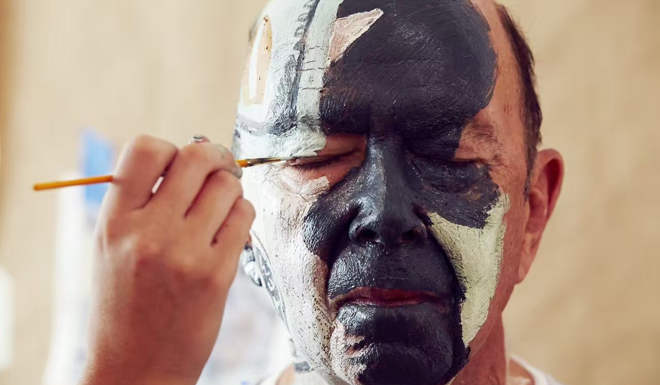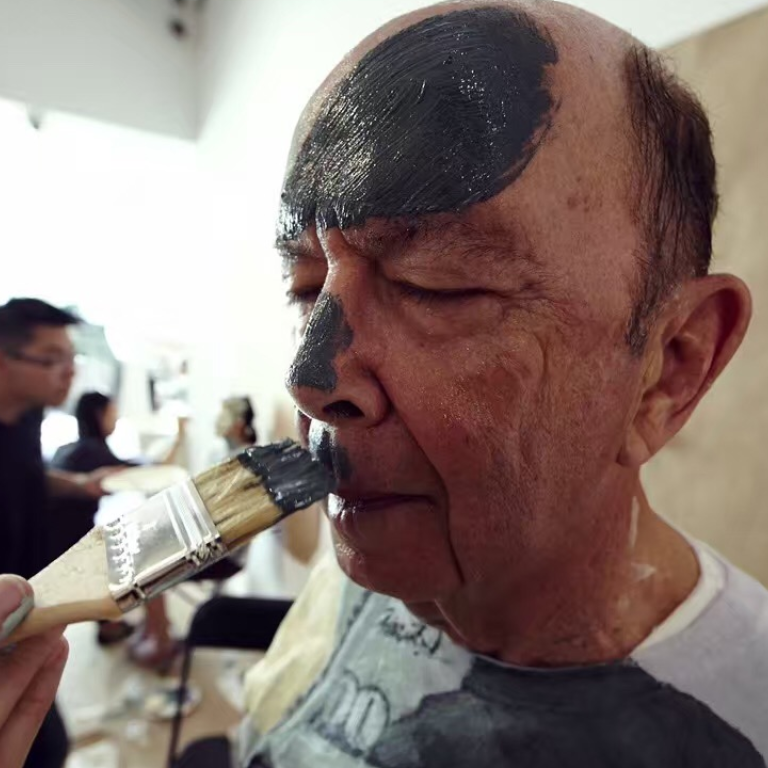
The day Trump’s commerce pick Wilbur Ross volunteered to be part of a famed Chinese artist’s work
The billionaire and keen collector devoted his time and energy to be ‘hidden’ in Chinese artist Liu Bolin’s painting, Dollar
World-famous Chinese artist Liu Bolin has a special admirer – the man who will shape America’s trade policy with China for the next four years.
US president-elect Donald Trump’s nominee for commerce secretary, private equity billionaire Wilbur Ross, may have backed calls to get tough on Chinese trade practices, but he’s also an avid collector of contemporary Chinese art, and even participated in one of Liu’s projects in New York.
“He came around 9 in the morning,” Liu said, recalling the day he first met Ross. “I thought he was a very nice old man, not talkative, but friendly. We shook hands, said hello, and then got down to work.”
Liu was working on a piece called Dollar before his exhibition in New York in 2014, saying he viewed the US dollar as “a new religion in today’s world”.
After finishing a project in India, the artist planned to finish the new piece in New York before his exhibition. “I asked my agent if they could organise about 78 people to participate in the project,” he said. One of the volunteers was Ross.
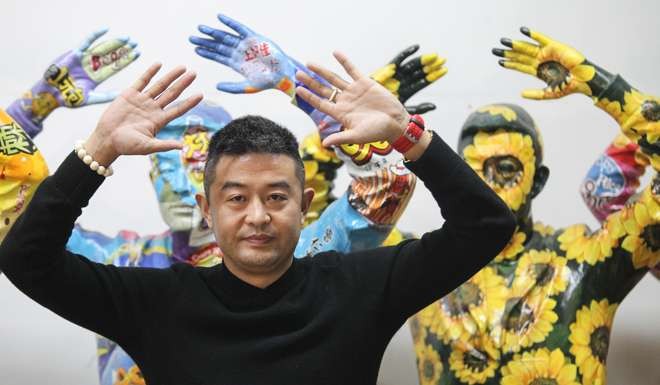
“He worked very hard, that’s my impression,” Liu said, “I didn’t know who he was. He was introduced to me as one of my collectors. I knew he must be a rich person but I had no idea what a big deal he was.”
Born in Weehawken, New Jersey, 79-year-old Ross has had close connections with China for decades. His business partners in China have included energy giant Huaneng Group, which was run for years by the eldest son of former premier Li Peng.
During the presidential election campaign, Ross’s opinions on China appeared to change 180 degrees.
In an interview with Bloomberg in May last year, Ross publicly challenged Trump’s view that China was a currency manipulator, saying the yuan was actually overvalued rather than undervalued, as often claimed by Trump in campaign appearances.
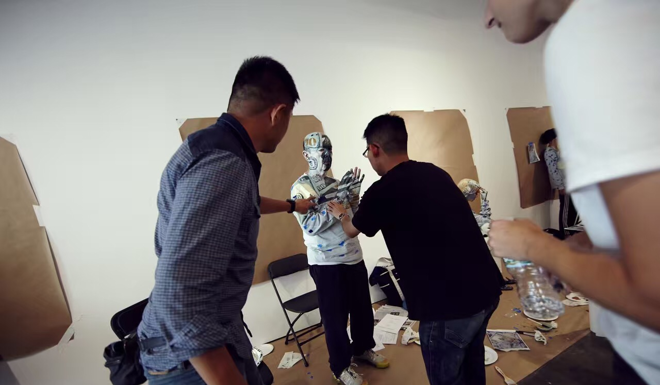
But in September he co-authored a campaign whitepaper with Peter Navarro, a China hawk nominated by Trump for the new post of director of the White House’s National Trade Council, which said the yuan was undervalued after all. They also argued that China and the US were competing for manufacturing jobs and that Chinese trade behaviour was deceptive and unfair.
However, there’s little evidence to suggest that Ross’s recent harsh comments on China are a reflection of long-held beliefs.
Among his US$100 million art collection is one of Liu’s early works, Three Sisters, a painting of three women in military uniform marching past Tiananmen Square, which hangs on his office wall in central Manhattan. If you look closely, a hidden Liu is barely visible.
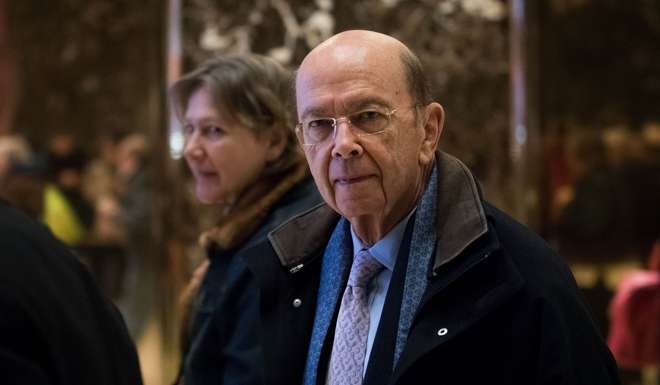
Covered in paint and standing for hours to ensure precision, Liu’s famed “vanished figures” art works are all about integrating people into the chosen background. In an art gallery in Manhattan, Ross devoted his time and energy to be “hidden” in Liu’s Dollar.
“He took it very seriously, and very accommodating,” Liu recalled. “He was very busy with work. Every couple of hours, we would have a coffee break. Everybody else would be having some refreshment or having cigarettes, but he would be using all these time slots reading and signing papers.”
That dedication to work is echoed in profiles written about Ross, a Harvard MBA graduate.
“I gave him massages on his shoulders and waist,” Liu said. “I knew these would be sore points if one stands for so long, and he’s an old man.”
Speaking in his Beijing studio, Liu said he was optimistic Ross’s passion for Chinese arts could influence his politics on China.
“As an artist, I focus more on the culture exchanges between China and the US,” he said. “Having a Sinophile in such high position should be a good thing. But we will see what’s really going to happen.”

Hailing from Shandong province, Liu went to an art school in Beijing for his postgraduate degree. He was working as an assistant for his tutor after graduation when his destiny changed one day. The art studio was demolished by the Chinese government and frustrated and angry, the penniless sculptor decided upon a unique way to express his dissatisfaction with the social injustice by “disappearing” himself at the demolition site. It was the genesis of his Hiding in the City series, which has brought him global acclaim.
Featured in Harper’s Bazaar magazine and friends with the French art star JR, 44-year-old Liu still has a passion for social justice in China.
“I think art and society can’t be separated,” he said. “I like to combine my art with social phenomenon.
In his latest project he wore a vest with pockets carrying 24 mobile phones that live streamed Beijing’s severe air pollution.
“Like a writer who uses his pen to express his views, I use my art to do that,” Liu said. “I hope my art can help improve the society.”
